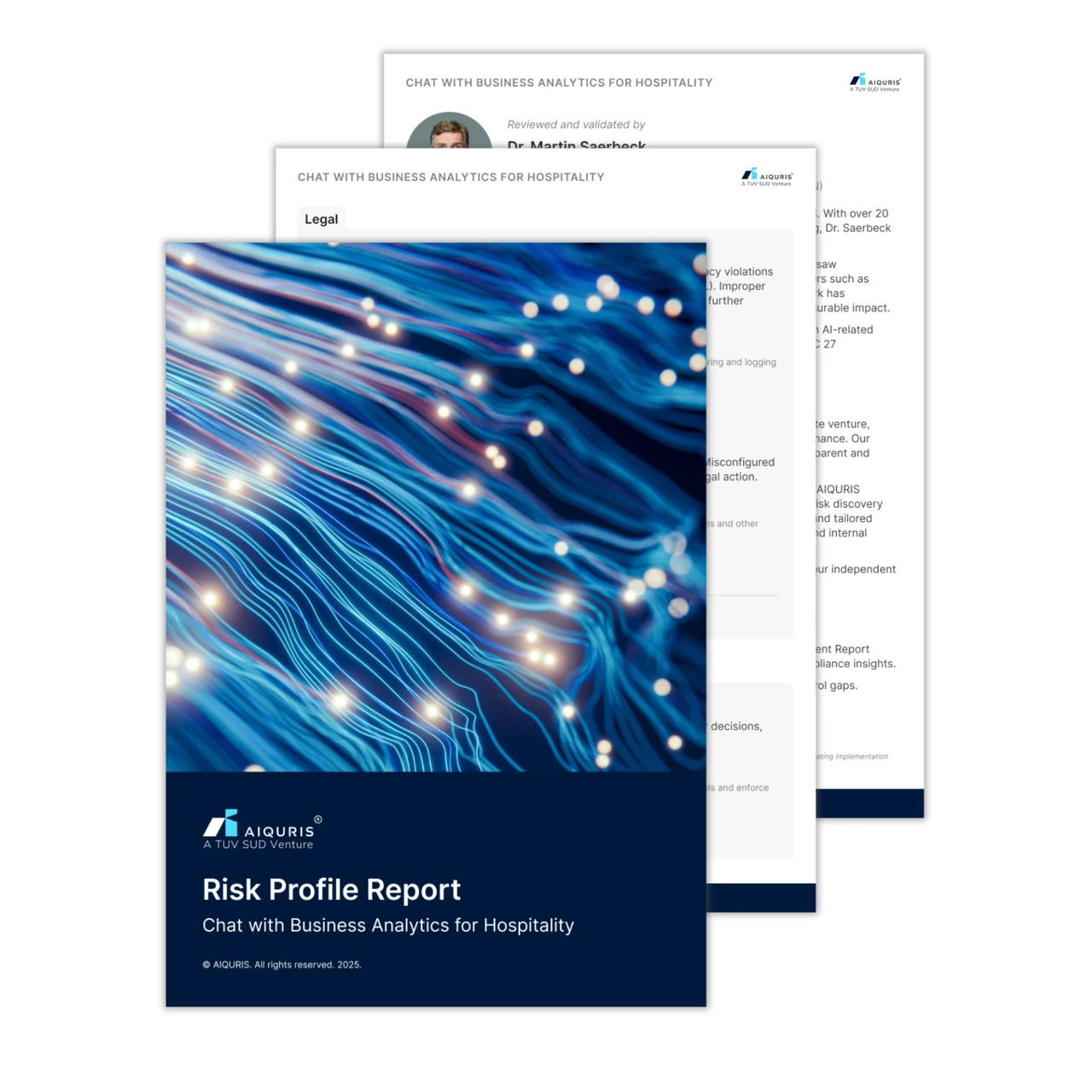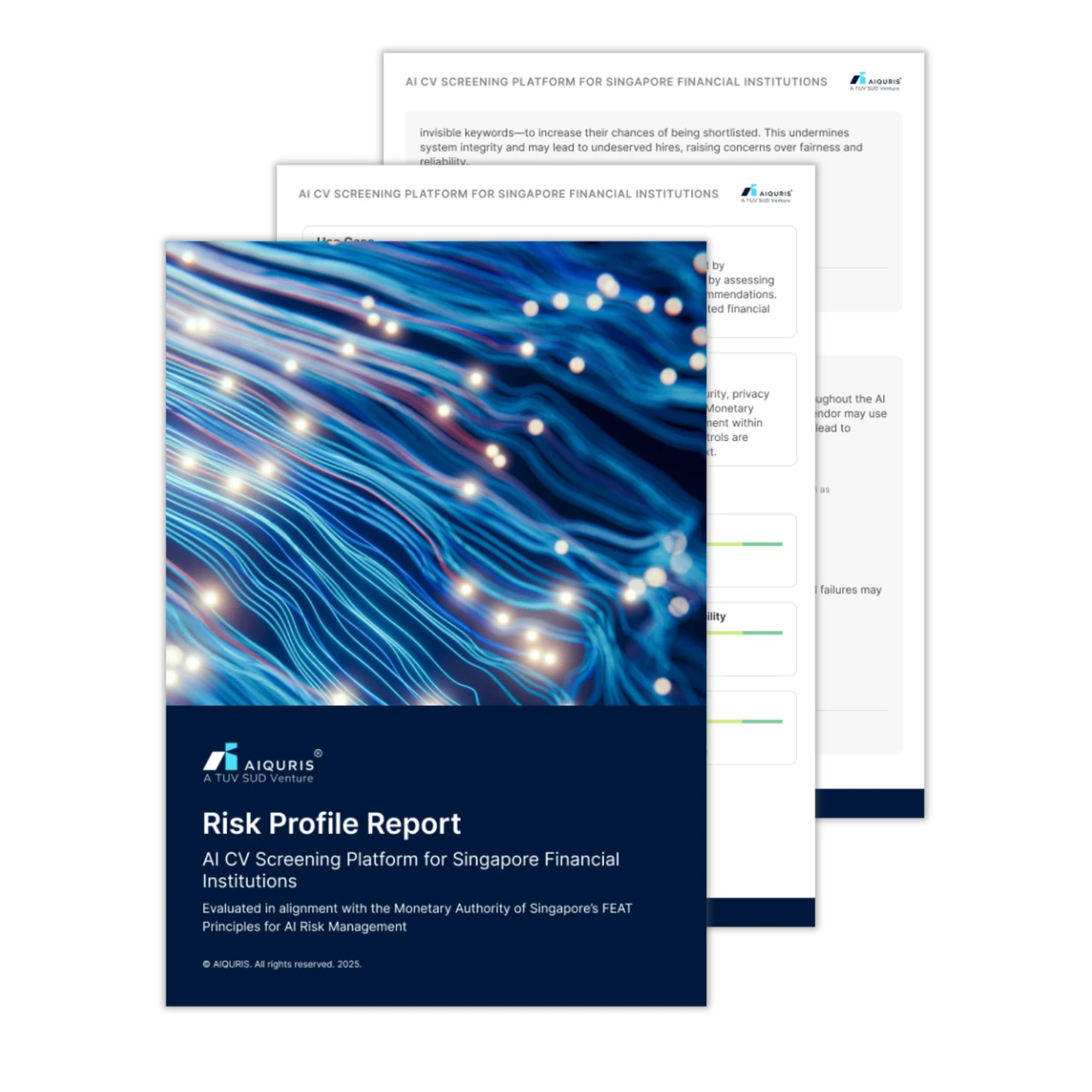As manufacturing industries increasingly rely on Artificial Intelligence (AI) to enhance production efficiency and streamline supply chains, ensuring responsible AI deployment has become essential. The global AI in manufacturing market is expected to reach $20.8 billion by 20281. Yet its rapid adoption comes with risks—ranging from biased predictive models in supply chains to cybersecurity threats in automated systems.
In this context, AI governance, supply chain risk management, and transparency are critical. AI-driven automation improves efficiency, but manufacturers must mitigate risks to avoid production disruptions, unethical sourcing practices, and compliance violations.
Navigating AI Governance in Supply Chains
AI governance establishes a structured framework for responsible AI deployment, particularly in manufacturing supply chains, where transparency and compliance are key. For example, Bosch employs AI to predict equipment failures and optimise production lines, but without proper governance, biased data can lead to faulty predictions, causing costly disruptions2.
To address these challenges, organisations are encouraged to adopt globally recognised best practices that emphasise bias mitigation, transparency, and accountability in AI systems. These practices also promote the continuous monitoring of AI algorithms to ensure they operate ethically and align with organisational objectives, reducing the risk of disruptions in critical operations3.
Framework for Effective AI Governance:
By integrating these elements, organisations can foster a robust AI governance framework that not only mitigates risks but also promotes ethical and trustworthy AI development. This approach supports the creation of transparent, accountable, and secure AI systems that align with global best practices.
-
Establish Accountability
Designate roles within your organisation for ongoing oversight of AI initiatives. This ensures that there are clear lines of responsibility and decision-making processes are transparent.
-
Monitor Data Quality
Regularly audit datasets used in training AI models to identify and rectify biases early. This step is crucial for maintaining fairness and reliability in AI outputs.
-
Engage Stakeholders
Include diverse perspectives in discussions around AI deployment to enhance decision-making processes. This involves stakeholders from various departments and external experts to ensure comprehensive insights.
-
Comply with Global Standards and Regulatory Frameworks
Ensure adherence to international standards and regulations, such as those outlined by the OECD Principles on Artificial Intelligence and UNESCO Recommendation on the Ethics of Artificial Intelligence4. Compliance with these frameworks enhances credibility and ensures that AI systems are developed and deployed responsibly. Additionally, aligning with ISO standards for AI governance can provide a structured approach to managing AI lifecycle risks and ensuring ethical practices5.
Deep Dive into Supply Chain Risk Management (SCRM)
As global supply chains grow more complex, manufacturing leaders must identify vulnerabilities that impact production. A report by McKinsey indicates that 71% of executives believe their companies face increased risk from supply chain disruption compared to previous years6.
Key Strategies for Mitigating Risks:
-
Diversification: Avoid reliance on single suppliers; cultivate relationships with multiple vendors to safeguard against disruptions. Toyota, for example, shifted to multi-supplier procurement after semiconductor shortages disrupted its production in 20217.
-
Technology Integration: Implement AI-powered predictive analytics and IoT sensors for real-time equipment monitoring and supply chain tracking.
-
Scenario Planning: Develop contingency plans based on AI-driven predictive modelling to anticipate and prepare for various risk scenarios.
For AI Governance leaders, AIQURIS provides tools to support responsible AI deployment across supply chains. It offers real-time regulatory intelligence to help organisations stay informed about evolving compliance requirements and uses risk-adjusted thresholds to assess and prioritise AI projects based on their risk exposure. Through AI-driven analytics, AIQURIS delivers insights into supplier reliability, operational resilience, and adherence to ethical standards. These capabilities enable governance officers to track changing risk profiles, manage compliance requirements, and apply appropriate mitigation strategies, ensuring alignment with regulatory expectations and organisational goals.
Enhancing Supply Chain Transparency
Supply chain transparency is increasingly demanded by consumers and regulators alike, focusing on the ethical sourcing of materials and production processes. As highlighted by MIT Sloan, transparency requires both visibility—collecting accurate data from all levels of the supply chain—and disclosure—communicating that information effectively8.
AI also plays a critical role in monitoring compliance with ESG and ethical standards like ISO 20400. By analysing supplier data, tracking sustainability metrics, and identifying non-compliance issues, AI ensures that organisations maintain responsible sourcing practices and adhere to global ethical guidelines. This level of oversight not only reduces reputational risk but also strengthens partnerships across the supply chain.
A transparent supply chain fosters trust and enhances customer loyalty. Furthermore, companies known for their commitment to transparency, experience lower employee turnover rates and greater market appeal. Here are actionable steps to improve transparency:
-
Conduct Materiality Assessments: Identify significant aspects of your supply chain impacting stakeholders and prioritise data collection accordingly.
-
Implement Blockchain Technology: Utilise blockchain for immutable records of transactions, enhancing traceability and authenticity.
-
Regular Reporting: Establish consistent reporting mechanisms detailing sourcing methods and supplier practices to meet consumer expectations.
AIQURIS facilitates this journey by providing tools that enable comprehensive tracking and auditing of supply chain activities. By offering use case risk profiling, AIQURIS helps organisations identify potential vulnerabilities early, ensuring every AI deployment aligns with ethical and regulatory standards. Its requirements management capabilities establish clear guidelines for data quality, compliance, and operational performance. Additionally, AIQURIS supports risk mitigation strategies, enabling proactive responses to emerging issues and ensuring that sustainability goals and regulatory obligations are consistently met.
Conclusion: Building Resilience with AIQURIS
Embracing AI governance, robust supply chain risk management, and transparency is crucial for success in today’s dynamic environment. Manufacturers must act now to secure AI-driven supply chains, ensure regulatory compliance, and maintain sustainable production practices. By utilising solutions like AIQURIS, companies can scale their AI capabilities confidently, addressing inherent challenges in supply chain management effectively. With features designed to enhance visibility and control, AIQURIS empowers organisations to foster resilience, optimise operations, and drive long-term value. To explore how AIQURIS can help with AI governance, talk to an expert today.






